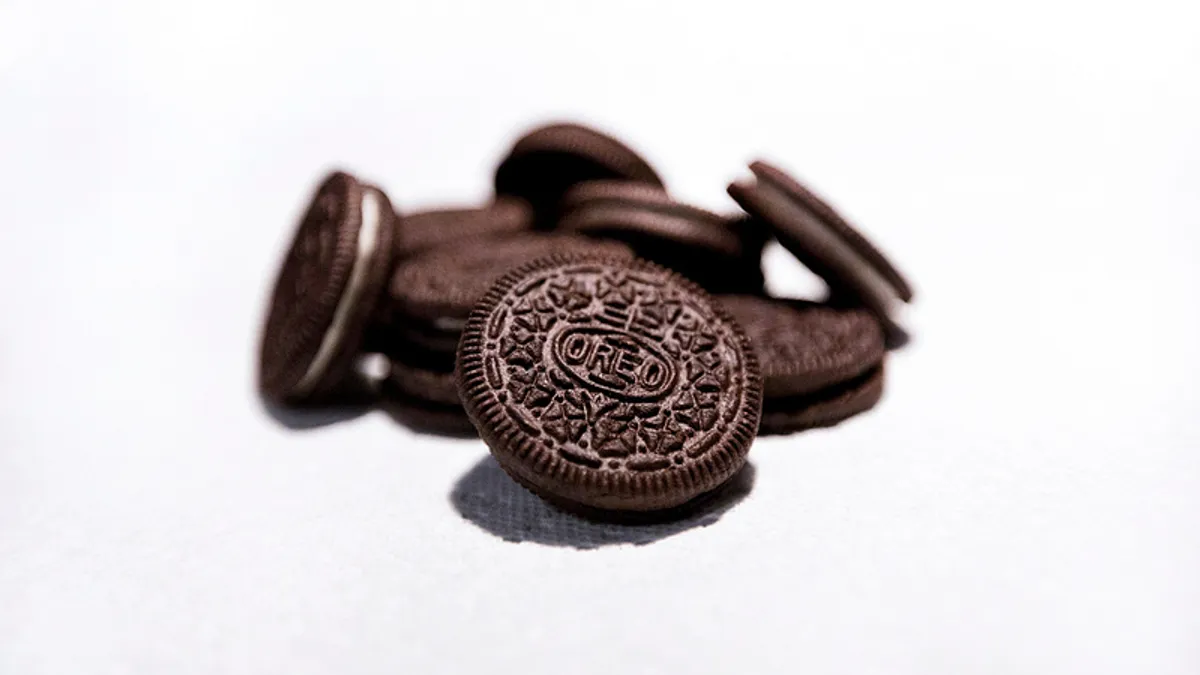They say that imitation is the sincerest form of flattery. But imitation, at least as it's practiced in the food industry, is often nothing more than opportunism.
When news broke earlier this month that Nestle had caved in to regulators in its long-running battle against knock-off versions of its Nespresso capsules, it seemed to mark an end to an era where innovation, originality, and novel thinking were what led to success.
Knock-offs are the polar opposite of a true breakthrough. But that doesn't mean they are insignificant. Sometimes they are better than the original. Sometimes they build markets and help create demand.
Here are our picks for the five most glaring knock-offs in the food industry — some good, some bad.
1. Oreos
The Oreos brand is synonymous with "sandwich cookie." But the truth is that there were such cookies before Oreos. The idea — two flat, round cookies combined with cream filling — first appeared under a brand named Hydrox. Some may remember Hydrox ... it was remarkably like Oreos, only not quite as sweet. Fans of the brand, or just enemies of Oreos, will be pleased to know that the Hydrox brand has returned.
2. Nibblr
One of the most fascinating success stories in recent years is Graze, the subscription snack business that swept Europe, where subscribers get a healthy snack combo in the mail every week. It's seamless, fun, and an easy way to increase the amount of nuts, dried fruit, etc in a daily diet. Graze began it's U.S. rollout several months ago, but not before General Mills lifted the idea and launched a snack subscription service of its own, dubbed Nibblr.
3. Almost the entire ramen industry
The entire ramen phenomenon didn't begin until a man named Momofuku Ando invented precooked noodles in 1958. Then, in 1971, Ando changed history by selling the noodles in one of those just-add-hot-water cups under the brand Nissin Cup Noodles. Seemingly within months, every food company on earth was selling its own versions.
4. Hershey spreads
The world, it seems, really loves the hazelnut spread known as Nutella. Consumer longing for the spread is so intense and so widespread, that parent company Ferrero has taken to buying hazelnut producers in order to ensure supply. It's all enough to drive Hershey to jealous distraction. So the U.S. chocolate maker decided earlier this year that it would launch a line of Nutella clones — chocolate and hazelnut spreads that come in jars that look shockingly similar to Nutella jars.
5. Unreal candy
Of course not all knock-offs are bad. Consider the example of Unreal candies. The Boston-based company is "rethinking" some of the biggest names in candy, and making knock-off versions that use healthier ingredients. Unreal offers versions of Snicker's, Reese's, M&M's, peanut M&M's, and Milky Way that shun artificial colors and chemical emulsifiers and use milk from grass-fed cows, real cane sugar, and cocoa beans.
Would you like to see more food news like this in your inbox on a daily basis? Subscribe to our Food Dive email newsletter. You may also want to read Food Dive's look at how four global crises are hurting business.








